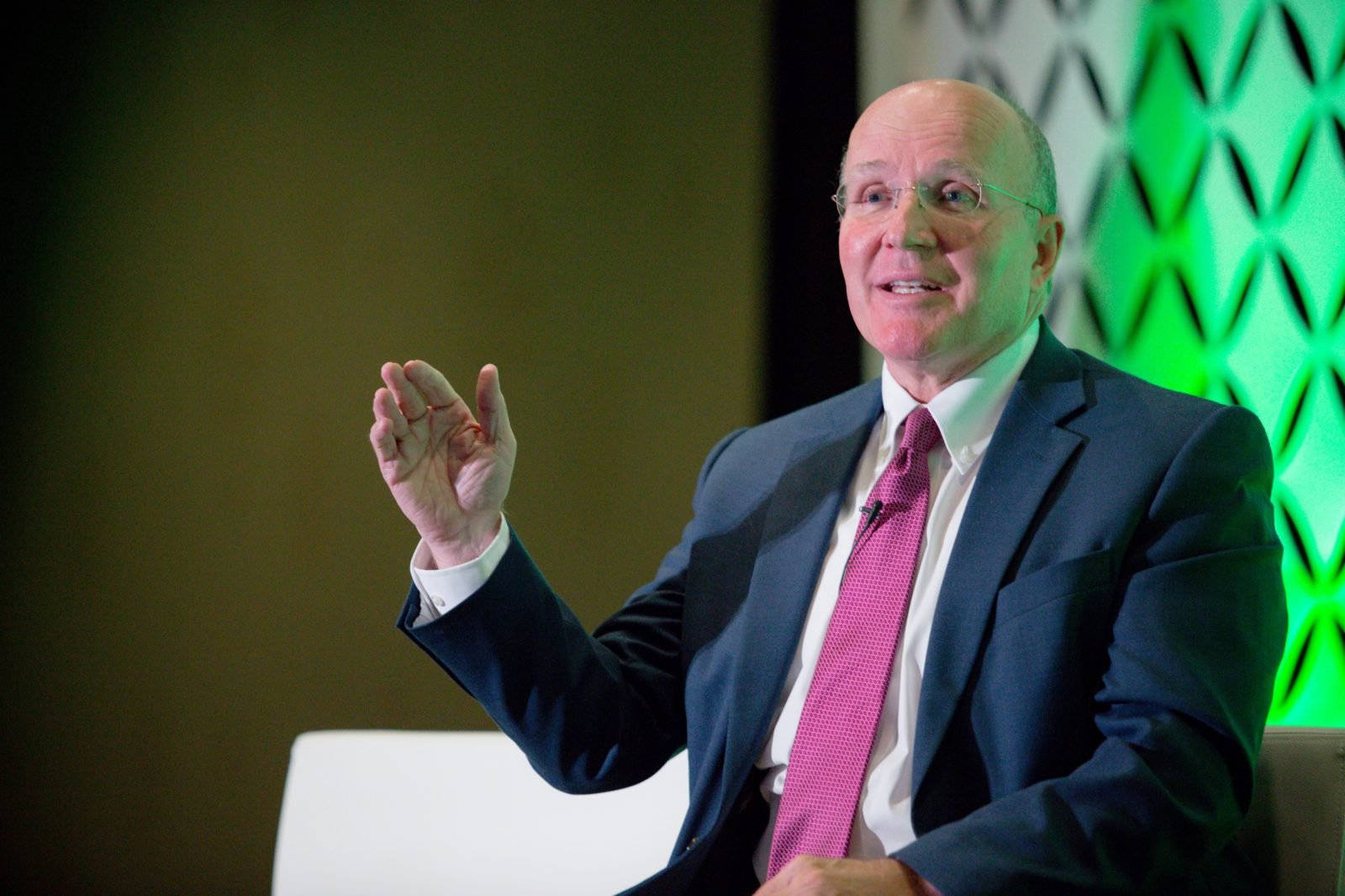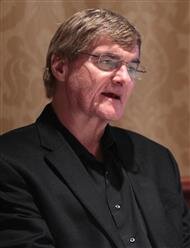Ron and Ed welcome professional comedian and CPA, John Garrett to the show to talk about John's new book based on his podcast of the same name - What's Your And? We were also joined by college football legend, Lou Holtz. At least, that’s what the caller told us in segment three. You really should listen for the details.
Before the show notes, a bit more about John:
John Garrett is a catalyst for corporate culture change. He’s on a mission to help teams break down barriers, foster unity and strengthen bonds. No matter where you are in your career, it’s important to differentiate yourself to achieve your goals. The future professional doesn’t define expertise simply in college degrees and certifications. They have passions outside of work that enhance their ability to develop stronger levels of trust with colleagues and clients. Through hilarious stories and extensive research, John encourages everyone to share their passions because they are the very heart of your organization’s culture.
Ron’s Questions: Segment One
I'm really excited to bring in John Garrett. He's a two time Emmy nominee, and is a catalyst for corporate culture change. He's on a mission to help teams break down barriers foster unity and strengthen bonds. The future professional doesn't define expertise simply in college degrees and certifications. They have passions outside of work that enhance their ability to develop stronger levels of trust with their colleagues and clients. John encourages everyone to share their passions because they are at the very heart of your organization's culture. John Garrett, welcome to The Soul of Enterprise.
I first heard you on a Sirius [comedy channel], didn't know who you were, but when they introduced you as a CPA, Notre Dame grad, it got my attention. You did this whole riff, I think it was on Willie Nelson. How he was complaining about the war or defense spending. And you said, well, what's the point? You don't even pay taxes anyway.
I just remember thinking, wow, this is crazy. You know, a CPA, former PwC. So tell us the john Garrett life story.
That's awesome. What I have to ask you, because I think you asked me this when I was on your show, when did you know you wanted to be a CPA? When did that happen for you?
Well, this book [What’s Your And?: Unlock the Person Within the Professional] has been a while in coming. We spoke about it a while ago. I remember you were said you were working on it and I said, Oh, I can't wait, when you get it done, we'll have you on the show. But why did you write it and why now? Why is this message so critical now?
It is a great message. And before we get into that, how did you get Lou Holtz to write your Foreword?
Wow, that's awesome. When I saw that, that gets your attention.
Well we've only got a couple minutes John, maybe less, but just real fast—and I'm sure Ed will pick up on this—but you say ignoring your And makes you less successful and less professional and makes your firm less successful. What do you mean by that?
You know, that is a profound idea, and I love the way you expanded on it in your book. So I'm sure we'll talk more about that.
Ed’s Questions: Segment Two
Folks, the book is What's Your And?, the author is John Garrett and he is here on The Soul of Enterprise this week. And John, before we dive into the meat of the book, I wanted to ask you, what was the process for you of writing? How did you go about writing this book?
You know, you incorporate other people's stories and the way I took it is it wasn't necessarily verbatim transcripts of your podcast interviews with them, but certainly those stories were then incorporated and scattered throughout the book. Is that correct?
Yeah, and it is really interesting the way the stories bounce back between your voice and then to the person that you're talking about, and you're giving great examples of what you just cited. One of the parts that really spoke to me was this, as you write, “Many professionals feel that keeping their passions to themselves is the safest move and the best as far as their career development. They feel that talking about them will make them vulnerable, and others will perceive them as not being very good at their job. These professionals are wrong, dead wrong. If you want to be staffed on a cool project the manager needs to know who you are. Expound on that a little bit. That really spoke to me.
Do you think this, at least where I am at Sage, that this is open and encouraged. But are you still finding that a lot of organizations do not encourage people to talk about their And?
They want to hear it and I think that's a good point. And you do make that at another point in the book.
Ron’s Questions: Segment Three
Welcome back everybody. We're here with John Garrett, the author of the newly released What's Your And? John, one of the points you make that I just thought was phenomenal was that you say employers look for extracurricular activities, but then they don't give the people they hire the time to continue with those. And then you pointed out that resume writers and coaches and people on LinkedIn are really suggesting you remove these extracurricular activities. Really? That does seem incandescently stupid.
As you know, at least in the CPA profession and other professions as well, we have this graying, that a lot of people are retiring. Something like two-thirds of the AICPA membership is eligible for retirement in the next seven or ten years. It's an astonishing number. And you actually blame no activities outside of work for the lack of succession planning in firms. And I thought that was a really interesting link.
Ed Kless Interrupting… “Hey listen we have got Lou Holtz on the line.”
Greg Kyte… “Hey of course this isn't Lou Holtz. This is Greg Kyte from Utah. Long time caller, first time listener.”
Ron Baker… “Good comedians don't grow on trees. They swing from them.”
[The remaining portion of this segment has been edited out of the show notes. It was hilarious and you really should listen.]
John, this is another thing that I really enjoyed about the book. You give many different ways for firms to disseminate their people's Ands. Toastmaster lunches. You've got your marketing ideas, newsletters. But explain the bucket list idea.
No, that was a phenomenal idea. It's kind of like you also talked about newsletters, and I know some firms have put movie reviews into their newsletters or recipes. And that's what gets read not the technical crap.
Well, John, this is great. Unfortunately, we're out of time because of Greg.
Ed’s Questions: Segment Four
John Garrett is our special guest today on The Soul of Enterprise. His book is What's Your and both Ron and I have had the privilege of being on that podcast. So we will post up notes where you can go listen to the episodes where we were on. I'm a recidivist there, I was on twice, I get to one-up Ron on that one.
I wanted to ask you one of the things that you point out, and this is in your section about being not afraid—don’t be afraid to be an original. And you say, “The world is starving for authenticity and uniqueness.” And authenticity is a word that really resonates with me. In fact, it's a word that I've talked a lot about in my professional career. I have a whole section in my consulting course on the notion of authenticity. And I just wanted to hear what your thoughts are on authenticity. When I hear it, what it means to me is not being afraid to say what you see and say what you feel, even more importantly. You can phrase it as “I think” rather than “I feel” because I think that's a better phrase, but we can't be afraid not to, and I have found that authenticity is actually, in my opinion, the most important thing that anyone in a consulting role can be.
Yeah, I think that was a super insight. The notion of it's easier to define what is unprofessional, and we can take anything is professional up to the point of well, no, that's gone beyond the pale right. Because David Maister in his books long ago, 30 plus years ago, talks about that's the worst thing that you can say to a professional, is that they're behaving unprofessionally. That really sticks in their craw.
But you do admit throughout the book that that line has changed over time. And we're constantly experimenting with it and playing with it. So talk a little bit about that.
So talk a little bit about that. Any impact that you've seen on the concept that you put forward in the book because of COVID. Have you seen any impact with regard to that?
Our North American Managing Director, Nancy Harris, who I know you know, because you met with her when we were doing the Sage sessions. Whenever we have a meeting now—and this just happened yesterday—it’s almost a riot if she does not bring her dog, Harley, onto the broadcast.
So we've only got about a minute or two left John. What's next for you? Is there another book on the horizon?
I'll give you a piece of unsolicited advice, and I think Ron will back me up on this. Resist the temptation to provide a checklist.
Outstanding. Well, john, thanks so much for being a guest on the show today. Really appreciate it.
[EDITOR’S NOTE: Both Ron and Ed have been a guest on John Garrett’s podcast. Here is a link to Ron’s appearance. Here is a link to the first and second appearances for Ed.]










